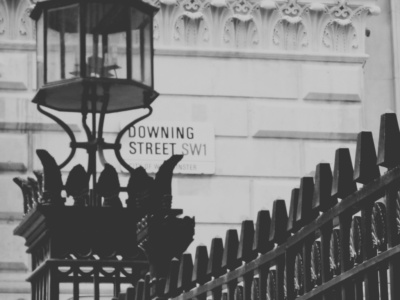London Mayor, Sadiq Khan, has revealed that he is considering imposing rent controls across the city in an effort to drastically overhaul current private rental regulations, according to a recent interview with The Guardian.
This exclusive interview came off the back of a leaked letter from Khan to Karen Buck, a Labour MP for Westminster North, that went public recently. In the letter, Sadiq Khan outlined his case for introducing new rent controls in London in order to impose a “strategic approach to rent stabilisation and control.”
This recent development is a U-turn from the London Mayor. Prior to the recent interview, Sadiq Khan hadn’t advocated for rent controls as a method for stabilising London’s property market prices.
Sadiq Khan has previously argued that the reason rent controls haven’t been imposed on private London residential properties is due to the fact that Conservative ministers haven’t been persuaded to introduce these measures.
However, private landlords in London will be relieved to know that Sadiq Khan, in his capacity as London Mayor, doesn’t have the authority to introduce rent controls as the laws governing rent are a government matter that is considered at a national level.
Khan’s recently leaked letter reveals his belief that rent controls in London are a necessary measure to cap rent inflation in order to stabilise the city’s property market.
Further to the interview with The Guardian, it is understood that Sadiq Khan will start advocating for an important change towards the current trend of short-term tenancy agreements and unpredictable rent increases.
Sadiq Khan has also proposed an end to section 21 “no-fault” evictions, which have been blamed for the rising levels of homelessness across the capital city in the past six years, according to campaign group Generation Rent, The Guardian reported.
This new development, being somewhat of a U-turn, isn’t completely out of the ordinary. When looking back to the suggested new measures that were publicised in 2013, Sadiq Khan suggested the right to longer-term tenancy agreements in an effort to keep rents at more predictable levels.
Again, in 2016, Sadiq Khan noted the rising housing crisis in his manifesto during the Mayoral election and commented: “I will fight for the Mayor and London councils to have a greater say in strengthening renters’ rights over tenancy lengths, rent rises, and the quality of accommodation.”
When looking outside of the rental market in London, Scotland has recently moved towards introducing modifications to the country’s housing laws. Meanwhile, several European capital cities already have rent controls in place, which have been credited for reducing rents and preventing unexpected rent price hikes.
UK rent controls in the twentieth century
The present rent prices across the capital have been blamed for a number of social and economic problems that have left scars across the city, something which Mayor Sadiq Khan is keen to address, according to the recent interview with The Guardian.
Property developers and private landlords in the capital have in recent years been demonized in the media and have received criticism from some MPs and charities unaffordable of rent prices and a high number of tenant evictions. The increase of bot rent prices and the number of new developments have created gentrification, higher poverty and homeless levels and younger renters being hit with higher living costs.
However, rent controls were in place during most of the twentieth century and are far from being a new concept to curb rent price inflation. First introduced by the British government in 1915, rent controls were originally established to control rent prices set by landlords in England and Wales until they were abolished by the Housing Act 1988.
Sadiq Khan was elected as London Mayor partially due to his attitude towards the housing crisis, and his latest opinions regarding rent controls reflect his commitment to maintaining his promise to the electorate.
The main ways that rent controls can be imposed are through capping rent increases, capping rents completely or placing a temporary freeze on rent prices. Out of these, it’s not yet known which method the Mayor favours.
According to the recent data released by the Office for National Statistics (ONS), in the past year to October 2018, London rents have fallen by 0.2 per cent.
However, not all are in favour of rent controls in the capital. David Smith, policy director for the Residential Landlords Association (RLA) commented: “It is curious that the Mayor is considering introducing rent controls at a time when rents in London are falling according to official data.
“The Labour Party in Wales has previously rejected rent controls arguing that they reduce incentives to invest in new property when we need more and leads to a reduction in the quality of housing. The same would be the case in London.
“All evidence around the world shows that where forms of rent control are in place, decoupling prices from the value of properties hurts both tenants and landlords. In the end what is needed is a relentless focus on boosting the supply of housing.”
Private landlords with properties in the capital will have to hold their breath until spring 2019, in order to see what exactly London Mayor, Sadiq Khan, has in store for them when it comes to the potential for rent controls to be imposed in London.






















Comments